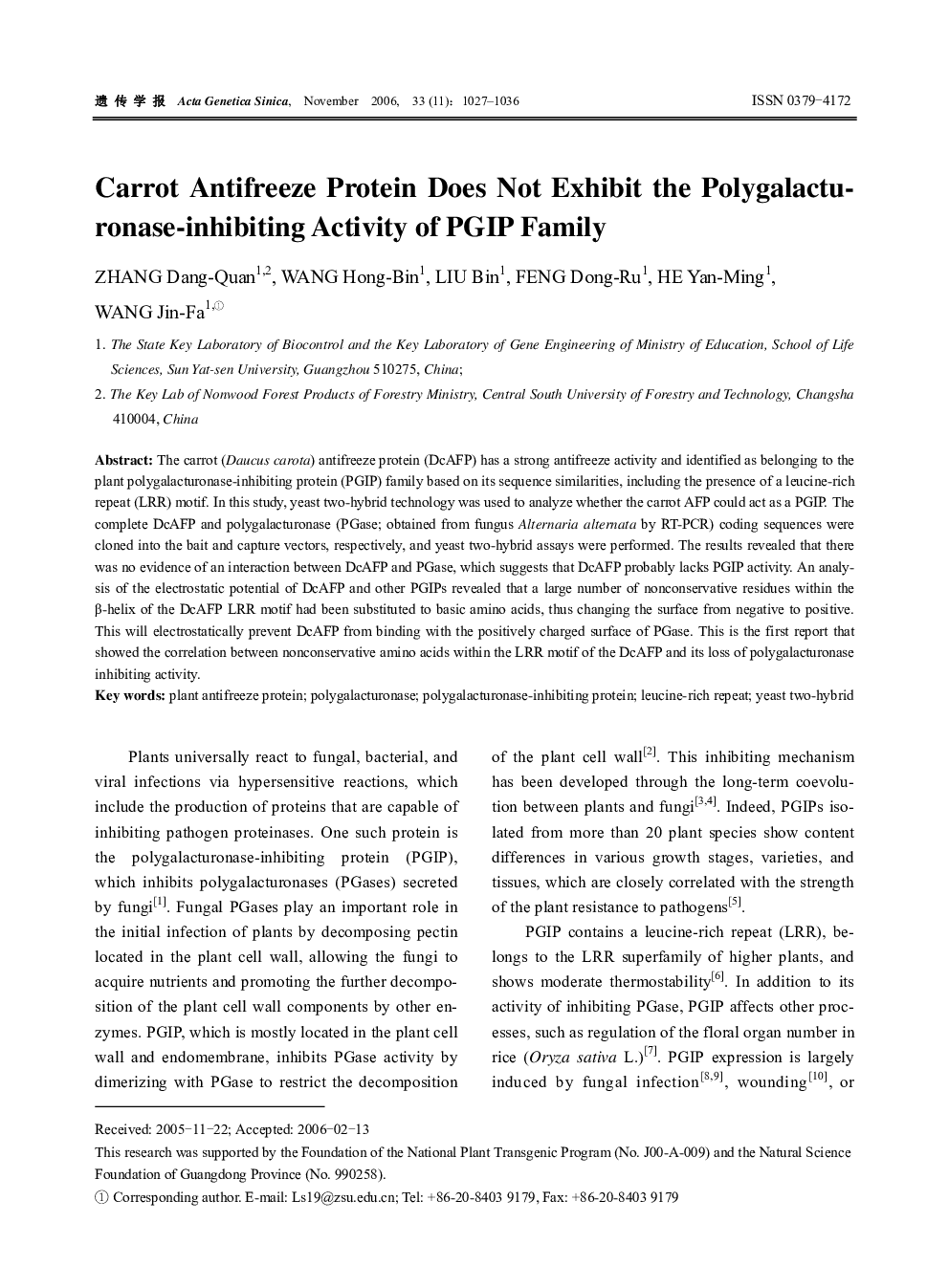| Article ID | Journal | Published Year | Pages | File Type |
|---|---|---|---|---|
| 2811219 | Acta Genetica Sinica | 2006 | 10 Pages |
The carrot (Daucus carota) antifreeze protein (DcAFP) has a strong antifreeze activity and identified as belonging to the plant polygalacturonase-inhibiting protein (PGIP) family based on its sequence similarities, including the presence of a leucine-rich repeat (LRR) motif. In this study, yeast two-hybrid technology was used to analyze whether the carrot AFP could act as a PGIP. The complete DcAFP and polygalacturonase (PGase; obtained from fungus Alternaria alternata by RT-PCR) coding sequences were cloned into the bait and capture vectors, respectively, and yeast two-hybrid assays were performed. The results revealed that there was no evidence of an interaction between DcAFP and PGase, which suggests that DcAFP probably lacks PGIP activity. An analysis of the electrostatic potential of DcAFP and other PGIPs revealed that a large number of nonconservative residues within the β-helix of the DcAFP LRR motif had been substituted to basic amino acids, thus changing the surface from negative to positive. This will electrostatically prevent DcAFP from binding with the positively charged surface of PGase. This is the first report that showed the correlation between nonconservative amino acids within the LRR motif of the DcAFP and its loss of polygalacturonase inhibiting activity.
